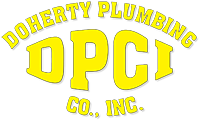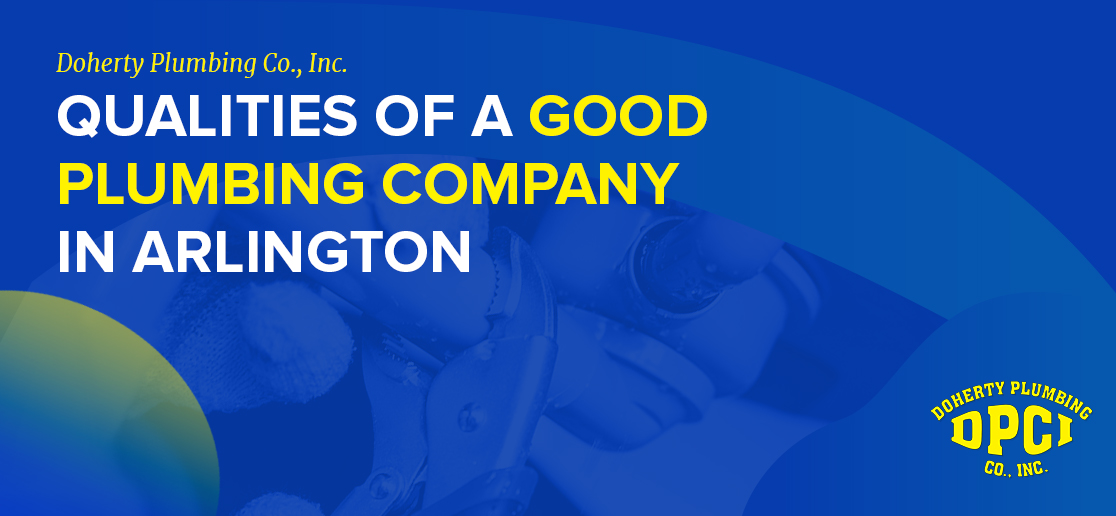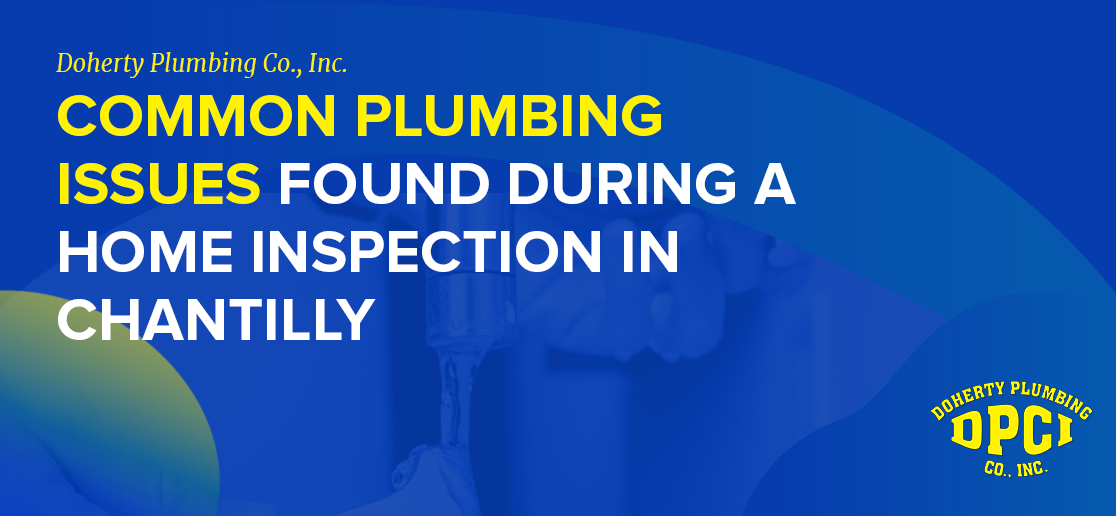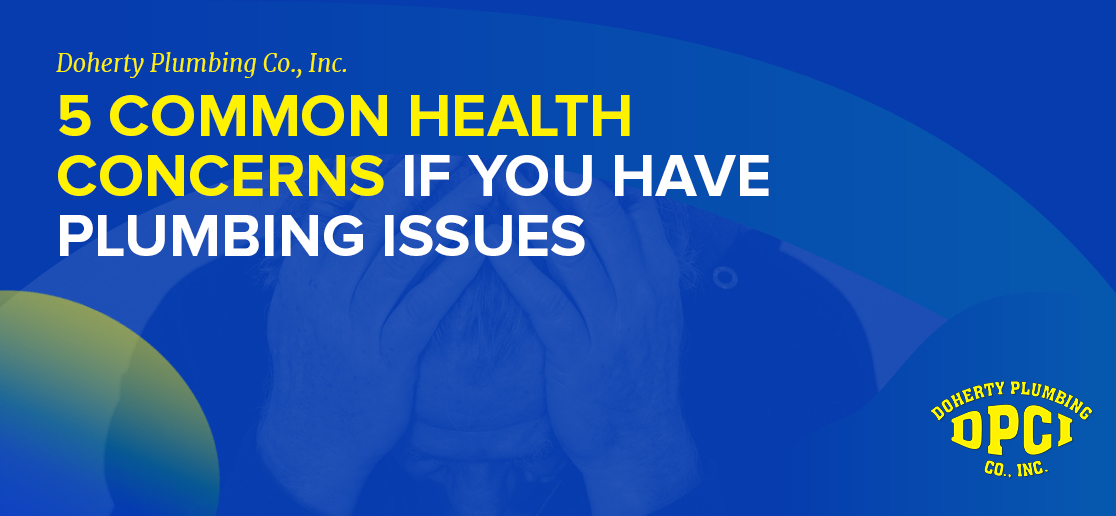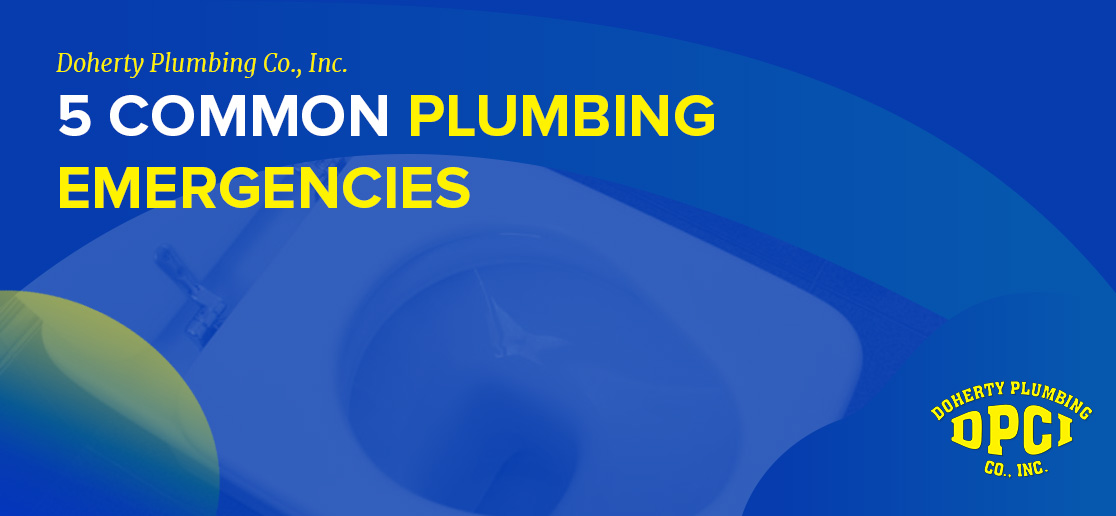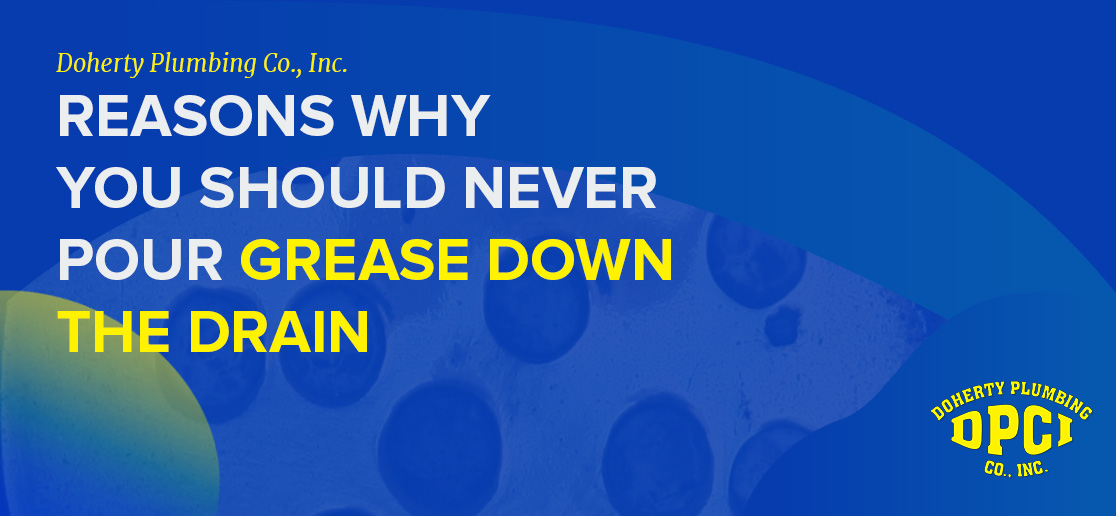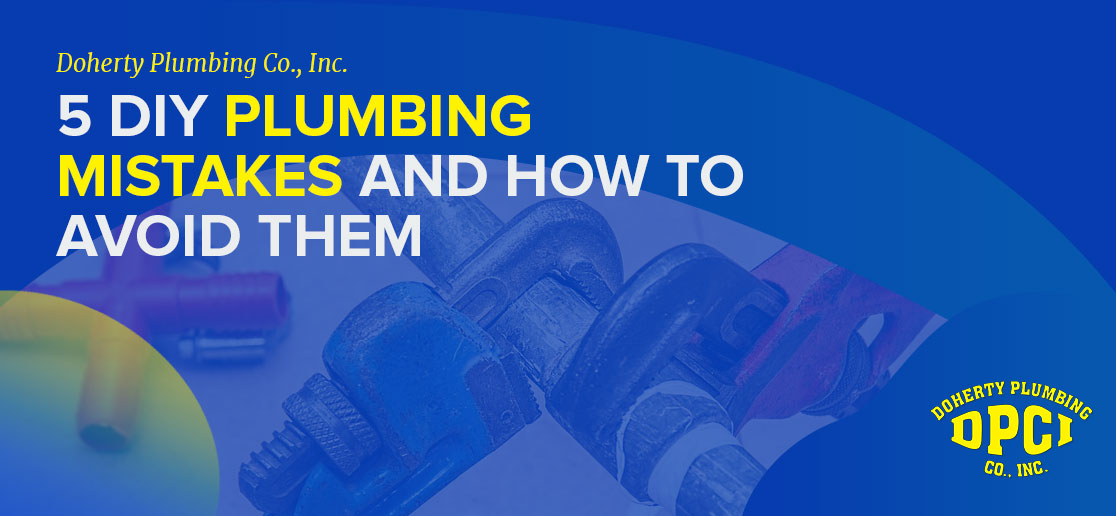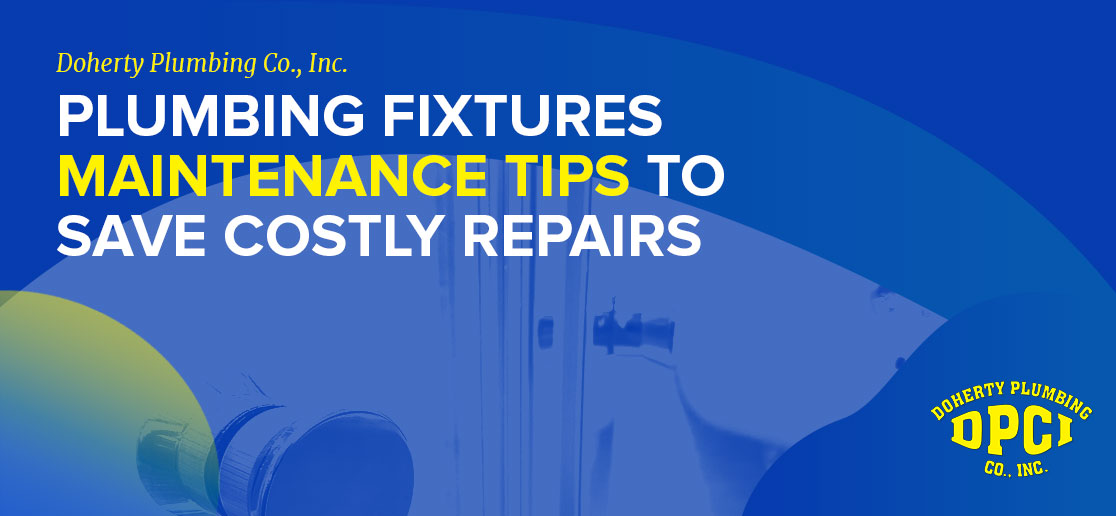How to Find a Local Commercial Plumber in Chantilly
Plumbing matters can be a huge hassle. It does not matter if you are at the helm of a household or a business. The need for a professional plumber occasionally is inevitable. Issues such as sluggish drains, toilets that refuse to flush, water leakage and water discoloration can always rear their ugly heads, after all. If you are trying to find a capable and talented commercial plumber who serves Chantilly, you do not have to go into panic mode. If you are detail-oriented and thorough, landing the assistance of a commercial plumber who can get you out of your rut is 100 percent realistic.
Do a Lot of Online Research
Securing five-star help with commercial plumbing in Chantilly is in many cases as simple as performing a classic online search. You can search for reputable plumbers in the area by combing through:
- official business websites
- Internet review platforms
- social media
Once you get the names of Chantilly plumbing companies that pique your interest, you can move forward. You should start by meticulously assessing all reviews you find yourself. Look for companies and commercial plumbers who consistently receive strong feedback from past and present customers.
If you come across reviews that talk about commercial plumbing experts who do not seem trained or seasoned, look elsewhere without any delay. If you track down reviews that talk about employees who are always tardy or disrespectful, do the same exact thing. Look for plumbing company reviews that go into courteous staff members, punctuality, first-rate equipment, contemporary techniques and the whole nine yards.
Seek Out Recommendations From the People You Know

You may be able to discover impressive commercial plumbing experts simply by reaching out to people close to you. Ask your family members, coworkers, neighbors and buddies if they can give you the names of highly regarded companies that specialize in commercial plumbing in the area in general. Tell them about your criteria as well.
If you are looking to hire a commercial plumber who knows how to handle tough clogs of all sorts, make that fact abundantly clear. If you are looking to recruit a commercial plumber who can talk to you at length about suitable regular maintenance practices, make that fact obvious as well. The better people understand your preferences and requirements, the easier it will be for them to point you in a company direction that makes total sense.
Interview Attractive Plumbing Company Candidates
If you can round up a strong list of commercial plumbing companies that seem promising, that is a terrific start. Note, though, that you should never make the common mistake of giving the “okay” to a plumbing business without first talking to its staff members at length. You should take the time to perform interviews with professionals who represent these plumbing companies that seem dependable to you.
Ask them all of the right questions as well. Do not be too intimidated to ask about prices, timeframes, equipment items, techniques and anything else along those lines. If you get a lot of accurate information, then it will simplify the decision process for you in a big way.
Trust Your Instincts

Remember, no two individuals are the same. If you come across a commercial plumbing company review that is positive, you shouldn’t assume that you’ll have an identical experience. A commercial plumber who knows how to handle school plumbing well may not be as strong in a food service environment, and vice versa. That is the reason that it’s so critical to go with your gut.
When you interview plumbing company representatives, you should think in detail about how they make you feel. Do they seem confident? Do they seem trustworthy? Do they hesitate to give you honest and in-depth responses? Trusting your gut may help you avoid hiring a commercial plumber who falls short.
Contact Our Plumbing Team A.S.A.P.
Are you waiting for unparalleled commercial plumbing service in Chantilly? If you are, call our renowned company as soon as you can to get a quote from our hard-working team. We are always ready to answer all your commercial plumbing questions and beyond.
Qualities of a Good Plumbing Company in Arlington
It’s important to know the signs of a good plumber in Arlington if you need work done. Choosing an established, reputable plumbing business gives you peace of mind because you know that your job will be done properly, on time and on budget. However, you may not know how to find a good plumber in Arlington. Take a look at the eight qualities of a good Arlington plumbing company.
They’re Certified
Don’t allow anyone to touch your home’s plumbing, pipes or septic system without proper certification. Plumbers should have state certifications and licensure. In addition, you want to make sure that the company you choose is registered as a business in the state.
They’re Bonded and Insured
In addition to being licensed and certified, a plumbing business should be bonded and insured. This is simply part of doing business as a contractor in Arlington. A contractor bond is a form of underwriting that provides backup funds in the event that something goes wrong during a project that prevents the customer from paying. Liability insurance for contractors protects you and your property against liability for any damage caused to your property by a contractor. If something goes wrong, you’ll be able to file a damage claim with the contractor’s insurance company to be compensated.
They Are Eager to Show You Previous Work

Reputable plumbing companies should be willing to show you examples of previous work. In most cases, they have photos of past work completed for clients displayed on a business website for you to browse. You should also feel free to ask a plumber to see photo examples of specific types of projects if you don’t see what you’re looking for on a website. This will help you to see the “finished product” that is similar to the type of project that you need done.
They Have Good Reviews and Customer Testimonials
A company that’s been around for a while should accumulate a fair number of online reviews. Check around to see if a company has mostly positive reviews posted online. If a company excels at customer service, you will often see real customer testimonials posted on the company’s website or social media pages. It’s okay if not every review left for a plumber is a glowing review. In fact, a plumbing business that only has extremely positive reviews may be using “fake” reviews. It’s statistically likely that even the best plumber will receive some negative feedback.
They Provide Clear Estimates Before Beginning Work

A reputable plumber will conduct a full assessment to provide you with a clear estimate before beginning work. Plumbers should always have your consent before beginning any work. Here’s a look at what should be worked out in a plumbing estimate:
- Hourly labor rates.
- Rates for parts and equipment.
- The estimated time needed to complete the project.
While plumbers can’t know how long it will take to complete a job down to the minute, they should be able to provide a fairly accurate assessment of the time needed to finish a project based on their experience with similar projects. An estimate is designed to allow you to make an informed decision about whether or not you’d like to move forward with a project. Keep in mind that a plumber should also ask your permission to work on anything that is not within the scope of the estimate if they uncover new problems after beginning the project. The Better Business Bureau (BBB) recommends reading your estimate carefully and checking warranties before giving your approval for a plumbing job.
They Show Responsiveness
You can learn a lot about how much a plumbing business values a customer’s time very early on. Most plumbing companies are very responsive because they know that many customers are contacting them about plumbing emergencies. If you’re having a hard time getting a hold of someone, the company you’re trying to contact may not be a good fit for you because it doesn’t have the bandwidth to respond to new clients. A slow response can also be a sign that a plumbing business doesn’t prioritize customer service.
They Don’t Bother With Jargon

When a plumber shows up for an estimate, the goal should be to explain their findings to you in a way that’s as clear and easy to understand as possible. Be wary of any plumber who uses complicated phrases and technical terms that are impossible to understand without a plumbing background. You should feel like you’re receiving an honest assessment that’s designed to help you make the best decision possible.
They Know Building Codes and Permits
A confident plumber is highly familiar with all state and local building codes and regulations that apply for your property. When you ask questions about permits, your plumber should be able to provide answers about what’s needed before a job can be started. They should also be able to tell you about general costs and wait times for specific permit types.
Find the Best Plumber in Arlington
Use these tips to find an expert plumber in Arlington! While you may be tempted to choose the first company that you find online, taking just a little time to go through reviews and photos of past projects will help you to know what to expect. Tracking down plumbing contractors that specialize in the type of work you need done can also save you time.
Common Plumbing Issues Found During A Home Inspection In Chantilly
When it comes to purchasing a new home for you and your family, you will want to have a home inspection to ensure that the home is in good shape and that you will know about any repairs that need to be made.
One of the most common issues that are found during a home inspection is problems with the plumbing. When it comes to the plumbing, you will want to make sure that all these issues are found because if left untreated, you could have some serious and very expensive problems.
Piping Issues
There are many issues that can be wrong with the pipes of your potential new home. These include:
- Galvanized pipes. Galvanized pipes were common in homes that were built before 1960. These pipes usually have a lifespan of around 20 to 70 years. Once these pipes start to corrode, they can increase the level of lead in your drinking water, and they can break down to the point of where they burst or leak.
- Polybutylene pipes. Polybutylene pipes first came on to the market in 1978 and were in production until 1995. Unfortunately, this pipe did not stand the test of time. The most common problem with this piping was that the polybutylene would interact with the chlorine in the water, causing corrosion which led to breakdowns. This type of piping is no longer allowed in newly constructed homes.
- Rusted cast-iron pipes. Cast iron piping was common in homes that were built before 1970. Cast iron piping can be perfectly fine, but when it does become rusted, it can lead to leaks and failure of the plumbing lines.
- ABS waste piping. This drain piping was used from the 1980s to the late 1990s. This kind of drain piping is prone to cracks, and if it is found at your new home, you may want to consider replacing it to avoid future issues.
- Uninsulated plumbing pipes. It is common to find uninsulated plumbing pipes during an inspection. This can lead to the pipes being exposed to freezing temperatures. When the pipe freezes, it can crack, causing a leak.
Clogged Sewer Lines

Another common issue found in home inspections is that the sewer line is clogged. Clogged sewer lines can lead to raw sewage coming into the house. This can do a lot of expensive damage to the home, not to mention the risk of illness.
A clogged sewer line can be caused by several things, including tree roots growing into the drain lines, something being flushed down the toilet that should not have been, and failure of the main sewer line. If this is found in the inspection, it should be taken care of quickly.
Issues With The Water Heater

There are several issues that may be found with the hot water heater upon inspection. These include:
- No hot water. There may be several reasons why there is no hot water including that the hot water heater may have failed.
- Inconsistent water temperature. This is an indication that the water heater element is not working as it should.
- Leaking water heater. A water heater can leak from the pressure relief valve, the liner, or the water inlet and outlet valves. If you find that this is the case, you will need to get a water heater replacement before you move in.
- Very old water heater. If the house you are moving into has a hot water heater that is over the age of ten, it is a good idea to go ahead and replace it.
- Sulfur smell. If during the inspection, a sulfur smell is detected, there is a build-up of bacteria in the water heater, and it needs immediate maintenance.
Low Water Pressure

In some cases, your inspector may find that you have low water pressure issues. If this is the case, you will want to find out the cause of the issue. Low water pressure can indicate the following:
- Supply line leaks. There may be a leak somewhere in the main supply line.
- Water source issues. If you have low water pressure, you may have an issue with your water source. Check with your water provider to ensure that there is no problem. If your house uses a deep well, you will want to have the inspector check the well pump.
- Leaky faucets. If there are leaky faucets in a bathroom or the kitchen, this can be the cause of water pressure issues. This issue is a simple one and can easily be fixed by a local plumber.
If your inspector finds any plumbing issues, it is imperative that they are fixed as soon as possible. While some issues are not major ones, the fact is that they can become huge and very expensive problems.
A small leak today could easily become a major leak in the future that causes a lot of damage and the risk for mold build-up. Find a local plumbing company in your area to come out and correct all these issues for you. You will save money and rest easy knowing that your plumbing is in good shape.
5 Common Health Concerns If You Have Plumbing Issues
When it comes to problems with household or commercial plumbing Chantilly residents understand that it’s important to take action before small issues become huge ones. That’s the nature of common situations like cracked pipes, leaky drains, stopped-up toilets, and more. What begins as an almost insignificant annoyance can turn into a costly, downright dangerous emergency if it’s ignored.
What kinds of health problems can spring up from typical plumbing challenges? The following is a very short list:

- Hepatitis
- Chronic headaches
- Gastroenteritis
- Skin infections
- Asthma complications
- Respiratory illnesses
- Bacterial infections
Just about any kind of plumbing situation can lead to health problems. Here’s a close-up look at five of the most frequent health concerns that directly result from plumbing problems:

- One: Gastroenteritis
This severe infection of your intestines, as well as the stomach, can mean a trip to the hospital. Typical symptoms include uncontrollable vomiting and severe diarrhea. The culprit is often contaminated water in raw sewage.
- Two: Severe Allergies
If you have asthma, even a minor plumbing issue can wreak havoc with your health. That’s because people who have asthma are susceptible to pick up infections from dozens of contaminants in standing water, especially pools of water that contain sewage and bacteria-filled substances that come out of leaky pipes. - Three: Mold-Caused Respiratory Illnesses
Mold, in all its forms, is a real enemy of good health. This single substance has the potential to cause a whole host of physical maladies, including fevers, red eyes, fatigue, skin rashes, sinus problems of many kinds, respiratory illnesses, throat irritation, sneezing, chronic coughing, breathing problems, and more. Often, mold builds up in moist areas of a home where leaky pipes have deposited water slowly over a long time. - Four: Hepatitis
Hepatitis is a serious infection of the human liver that can lead to dozens of minor and major symptoms, including vomiting, joint pain, fever, and worse. One of the easiest ways to contract hepatitis is by being near dirty water, especially the kind that pools from a backed-up plumbing system. - Five: Severe Headaches
If you’ve ever had a migraine headache, you know how debilitating the condition can be. While most plumbing issues won’t cause you to have a migraine, almost all forms of dirty water and mold can lead to excruciatingly painful headaches. Some headaches last for several days after exposure to mold, mildew, bacteria, viruses, raw sewage, and human waste.
Don’t Get Sick, Get Plumbing Problems Fixed ASAP.
If your home or office is the site of a plumbing problem, even a minor one, call a professional and get it taken care of immediately. Be wise and take a proactive approach. It’s the best way to forestall costly plumbing bills and what could become rather serious health problems as well.
5 Common Plumbing Emergencies
Emergency plumbing have made our lives a lot easier by providing fast and convenient plumbing services at any time of the day or night. You can now request a plumbing emergency service around the clock on weekends and even public holidays.
One of the most surprising things about this type of services is that the services offered are always the same as the normal plumbing services provided during normal business hours. Most plumbing companies charge a small fee for emergency plumbing services to cover overtime plumbing technicians and other miscellaneous costs incurred outside of business hours.
But, it’s definitely worth the extra service fee as you get same-day plumbing services and avoid serious plumbing problems in your home. Plumbing companies usually post their emergency number on their website to make local service calls.
As we all know, there is no specific time or situation that plumbing emergencies occur. Hence, it would be best if you had a permanent solution when you encounter such a problem. With Fairfax Plumbing services, you can be sure of finding the perfect solution to many problems with just one click. With the best plumbing solutions available now, the job is much easier, less cumbersome, and hassle-free.
We are now going to look at some of the most common plumbing emergencies that a homeowner can experience.
The five most common plumbing emergencies
The toilet is overflowing

Whether your toilet is clogged or the float mechanism isn’t working properly, the first step is to stop the water flow. The water valve is located at the bottom of the water pipe on the toilet side and should be turned fully counterclockwise. Once the water stops flowing into the toilet, the mechanism’s clogging or failure can be cleared.
Clogging a toilet can be as simple as a solid vertical plunger. More severe obstructions may require a drill bit to remove debris blocking the flow of water. Once the blockage is cleared, reset the float mechanism and open the water valve.
Drain a clogged sink
The best way to avoid clogging the drain is to avoid getting grease, coffee, and other items down the drain. However, even the most cautious owner sometimes has to deal with this inconvenience. If using a plunger to remove material from the drain doesn’t work, a perforator (or “snake”) may be required. The auger is easy to use with a little practice and perseverance.
Pipes have burst

Sometimes, the cause of pipe bursts over the years is corrosion. If the pipe bursts, turn off the water supply immediately. If possible, remove furniture or other items to prevent further damage.
Leaky pipes
If the leak is flowing from the seal, first tighten the seal with a wrench. Keep in mind that tightening one joint may relax another joint. If water comes out of the hose or faucet, the rubber patch can correct the problem.
Sump pump issues

If the sump pump is not working properly, remove the strainer to ensure that debris does not obstruct the impeller’s movement. If the impeller is clean, the pump may not be receiving enough power, or it may have a defective float switch.
Don’t postpone plumbing repairs
Sometimes we’re too relaxed and don’t know the importance of getting repairs done on time. If you delay these repairs, you could end up spending a fortune on it. You need to make sure that any plumbing issues are fixed before it’s too late.
Save money
Fixing any plumbing issues promptly will save you a lot of extra money. If your water bill is too high, you can consult a licensed plumber to determine what the problem is.
Can I fix it myself?
If you have the knowledge and skill for fixing simple issues, like a leaky faucet or shower head, then why not. However, if it’s not done correctly, there is a risk of turning it into a bigger issue. It is advisable that you call a licensed plumber to fix any plumbing issues.
Why choose us?
We offer the best plumbing service in any residential or commercial areas. Our services are very reasonable and our plumbers are licensed. Thus, we only guarantee high-quality solutions for every repair and installation. Call us at (703) 570-6992 to find more information.
5 Plumbing Myths That Can Cost Money
Plumbing is an important part of the house, and maintaining it can get tricky as an owner. This becomes particularly true when the issue is not noticeable at the initial stages. Which household problem is most common in plumbing? Leaky pipes, dripping faucets, clogged toilets and drains, leaky toilets are among the most common issues in household plumbing.
How can you estimate the cost of plumbing? You can get the best estimate on a plumbing job by getting the base rate per hour on the plumbing you need. It could be from basic jobs like fixing leaky faucets to fixing a pipeline. Evaluate how many hours of work you will need and calculate the overall price.
You may be using household hacks loaded on the internet or following your friends or family’s advice to keep the plumbing pipes clean. However, they can impact your finances in the long run. In this article, we will see 5 plumbing myths that can cost you money.
5 Plumbing Myths
Lemon down the drain freshens your plumbing drains

Myth Busted: It’s said that a lemon squeezed into your kitchen or bathroom drain can make your sink smell fresh for a couple of days. However, this will not unclog, clean or protect your drains. On the contrary, excessive citric acid into the drain due to lemons can eventually rust your plumbing pipes resulting in cracks and leaks in the pipe. This implies you will need frequent maintenance for your plumbing systems.What You Should Do: Avoid using citrus juices in the kitchen or bathroom drains to prevent corrosion of pipes. If there is a bad odor coming from your plumbing drains, have it checked by a licensed plumber immediately.
Anything can be flushed in a toilet bowl
Myth Busted: People often feel that the toilet bowl is an all-flushing bowl. Just because its outlet is wide-mouthed does not mean that anything can be flushed through it. Flushing anything recklessly can clog your toilet and overall bathroom plumbing system. A clogged toilet drain can cost a lot for a fix-up.
Avoid flushing down items in the toilet bowl like:
- Paper towels
- Feminine hygiene items
- Makeup
- Cotton swabs
- Oils
- Grease
- Coffee grounds
- Hair
- Diapers
What You Should Do: It is important to dispose of feminine hygiene items, makeup, paper towels, and hair strands into garbage bins to avoid the toilet drain clogging. Certain items labeled flushable such as a baby wipe, also should be avoided being flushed as they do not decompose or break down in the water.
Note: A product (given as flushable) can be flushed after determined with a small test. Take a bowl filled with water. Put this product in water submerged in it. After an hour, take a stick and swish it around. If the product breaks and almost dissolves, then it is a flushable product. If not, it should be thrown in a garbage bin. They are potential pipe cloggers.
Cleaner tablets for Toilet bowl cleans and saves effort and time

Myth Busted: Cleaner tablets clean your toilet bowl with less effort; however, these bleach-infused cleaners will result in crucial repairs. They mask the smell with bleach, but in reality, the scum is underneath it and you may have to scrub more. These tablets are placed in a water tank that may harm the flushing mechanism in time. They have ingredients that can jam the mechanism due to deposits in the water tank and the pipes.
What You Should Do: Spend some time cleaning/brushing the toilet to avoid long-term and huge expenses to repair the toilet.
Drain cleaners clear the clogs efficiently
Myth Busted: Drain cleaners are often considered a quick fix for clogged sink or drain. The ingredients within the drain cleaner are harmful and damaging to plumbing pipes. It is important to remember that these drain cleaners are meant for minor clogs and not major plumbing issues. They are for short-term fixes but not meant for long term fixes. By using them, you mask the underlying, more significant plumbing issue.
What You Should Do: Drain cleaners are for minor clogs. They can be used for buying time until a professional comes to check and fix the underlying issue. A plumber can inspect the core of the issue.
If stuff is going down, there is no clog

Myth Busted: You often feel that there is no problem as long as the stuff is drained into the pipe. However, it is essential to remember that certain foods like rice, pasta, etc., bloat within the drains. They eventually result in pipe blockage and a bad smell in the drain. Over time the food gets caught into the previous build-up and result in drain clogs.
What You Should Do: Use sufficient water to drain the kitchen sink. Eliminate the solid food into a wet garbage bin. Regular plumbing service and maintenance should be done to avoid long term issues. This way, there is no unseen build-up in the pipes.
Conclusion
Considering the above myths that are busted with reality/facts, it is essential to stay away from myths that can damage your plumbing framework costing you more than ever. Regular plumbing service and maintenance can keep you from potential plumbing issues in time and getting a professional plumbing service will help you do this at reasonable costs.
Chantilly plumber services are the best, reliable, and professional who can deal with all your plumbing issues, service, and maintenance. Remember, expert plumbers can inspect, evaluate, and analyze the source of the problem. They fix the problem after thorough analysis with quality materials. With ever-growing household plumbing issues that can hinder your regular works in a big way, their services will help you to get back on track with your routine.
A right and healthy plumbing framework are equally essential for a household or any construction to have a peaceful living. Stay away from the potential plumbing hazards caused by ignorant myths to keep you off from draining money to fix drain pipes.
Reasons Why You Should Never Pour Grease Down The Drain
Apart from being detrimental for your health, grease is likewise bad for the drainpipes as well. You might have heard that it will be okay in case grease is poured down the drain so long as it is done with dish soap or hot water. According to some individuals, a blockage will not be caused in case liquid cooking oils are poured down the drain.
However, in reality, grease should never be poured down the drain. In the following paragraphs, we will take a look at the harmful effects caused by oil on the drain of your residence. We will likewise mention some alternative methods for getting rid of all these materials.
What can happen once grease is poured down the drain?
Being fluid, it is quite simple to pour grease down the drain. Nevertheless, it is going to solidify when the temperature of the grease becomes low, and this will form a clog which you’ll find quite tough to remove. Although you might be unaware of the issue, a time will arrive when the accumulation of grease in the pipes can result in a blockage as well as other plumbing issues.
The problem will become worse in case the grease does not stick to the pipes and instead, flows right into the sewers. This is where oil from all the restaurants and households in your area is going to combine. These formations of grease will break down over time to form glycerol and fatty acids.
The fatty acids are going to form fatbergs (which are actually compounds resembling soaps) after binding with calcium within the sewers. When there is an increase in the sewer level, the fatbergs are going to cling to the ceilings of the sewer where they will be increasing in size, thus blocking the whole sewer pipe in the long run.
A fatberg will be able to grow to a size which will be limited by the sewer’s size only. In the year 2019, a fatberg having a dimension of 210 feet ended up blocking a drain in Sidmouth, Britain. As a matter of fact, in excess of 8 weeks was taken by the sewer team for dissecting this huge mass of fat.
How to dispose of grease correctly
It is possible for oil, grease, and fat to form a clog within pipes even though the oil is fluid at the normal room temperature. However, in case it is not possible for you to pour the stuff down the drain, how will you be able to dispose of used olive oil, lard, or bacon grease?
Cooking oil

After making use of coconut, olive, sunflower, or avocado oil for cooking, wait until the oil has cooled down. Following this, soak up this oil using paper towels prior to washing the pan. The paper towels must be thrown in the trash can. However, disposal with paper towels can prove to be quite costly and wasteful in case you have used plenty of oil.
Instead, the oil has to be poured into a glass container with a lid for reuse in the future. In case you do not have any intention of using the oil once again, it has to be poured into a disposable container having a screw top (for instance, a soda bottle). Throw the container away once it becomes full.
Grease

Wait till the grease within the pan solidifies after cooling down. Following this, get rid of the grease from the pan with the help of a spatula and it should be thrown in the trash. Make use of a paper towel for soaking up any leftover fat or oil within the pan.
In case a substantial amount of grease has to be disposed of, make it a point to pour the grease into a container while it is hot and liquid as well. Once the container becomes full, it can be either emptied into the trash or the container can be thrown away. On most occasions, restaurants usually have a selected container for oil.
What will happen in case grease is already poured down the drain?
The majority of the individuals are not aware of the issues that can be caused by grease within a drain system. In case you have poured oil unknowingly down the drain, it might be feasible to get the oil out of the drainpipes into the sewer system.
Boiling water has to be poured down the drain for liquefying the grease within the pipes. While you are pouring boiling water down the drain, the hot water tap has run for flushing the liquefied fat. It is a fact that the emulsification of water and oil is allowed by the surfactant molecules, and for this reason, dish soap has to be poured down the drain as well as along with the boiling water.
Although dish soap and hot water might assist in getting rid of the grease from the pipes, it is nevertheless going to accumulate within the sewer system. Moreover, it might not be able to eliminate the problem entirely.
Communal effort
It is a fact that it is possible for raw sewage to spurt from all the manholes within the locality in case a water authority is not able to deal with a fatberg successfully. For preventing this situation, it is imperative for the restaurant owners and the homeowners to work together for preventing the accumulation of grease within the sewer system. Even though your own drain might not be blocked by grease, it is your responsibility to help in preventing sewer issues in your locality.
What has to be done for avoiding clogged drains?

In case you have ended up making some grease by frying bacon, you should allow it to become solidified within the pan or it should be poured into a jar for solidifying there. The grease can be then wiped up using a paper towel. One delicious way for reusing bacon grease will be to fry an egg by making use of bacon grease.
Take the help of professional drain cleaners
Professional assistance might be required in case you are pouring grease down the drain for quite some time. This grease is going to hold on to the debris which is blocking the pipes and needs professional cleaning. For this, you need to come in touch with the best Arlington plumbing services for unclogging the drains and cleaning the pipes. Our plumbers are quite experienced and technically equipped given that they have rendered their services for a significant amount of time successfully. Therefore, do not give any second thoughts and call them today.
5 Reasons Why You Shouldn’t Flush Food Down the Toilet
When customers contact us looking for cheap plumbing services Chantilly, it’s occasionally because they caused a problem with their plumbing system by flushing food scraps down the sewer.
Although many of us have become very reliant on our garbage disposal systems, which most people agree are one of the best inventions of the 20th century. Having the convenience of just rinsing we wash away your dinner plates and flipping a switch so all the food scraps isn’t something that everyone has access to.
Unfortunately, too many people are tempted to simply flush their food scraps down the drain. The primary excuse that we encounter is that they don’t want to have to deal with the smell of food waste in their kitchen until they dispose of the garbage the next day. This is understandable as disposing of fish or eggs can be a little smelly
However, here are the reasons why you cannot flush food down your toilet.
The pipes aren’t designed for food
Most pipes are not designed to run from your toilet to your major sewer and toilets are not designed to deal with food scraps to begin with. Because of this, food can easily block these pipes and create a backlog of raw sewage that can snow back into your home or apartment.
Some food can block sewer lines

Two of the most popular food substances that end up in sewage systems are fats and oils when cooking oil butter or bacon fat cools it solidifies, and this congeals on the inside of your sewer line initially it will constrict the flow of sewage and eventually stop it completely. Hardening cooking fats are causing extensive damage to sewers all around the country, forming fatbergs that can affect your entire District.
Other foods degrade too slowly
Foods such as apple cores corn on the cobs and animal bones take ages to decompose and if you flush this food down your toilet, it’ll take a miracle to avoid blocking it never mind the fact if it works its way through the sewage system it’s just going to end up as more fodder for the giant fatberg that’s hiding down there
Many foods absorb water

Other foods such as oats and rice are very water absorbent and just swell up when they come into contact with it. So, flushing a bowl of oatmeal may seem innocent, but it’ll quickly clog up your sewer line.
Sewage maintenance is costly
Nobody likes taxes. It’s going to cause your District additional expenses by flushing food down into the sewage systems because this is going to cause massive disruption to your city’s wastewater processes. The cost of maintaining these systems is rising annually.
What to do with your leftovers instead of flushing them?

So, we understand why you may not want to leave smelly leftovers in your garbage until the next day, but here are some options worthy of consideration that might help.
- Some leftovers can easily be frozen or refrigerated to use at a later date, there are hundreds of different ways to repurpose leftover food
- If you have some smelly liquid-based food or cooking pots, you can pour them back into an old can and reseal it or get a leakproof plastic bag fill it and then just toss it back into the trash this will keep the smell nicely sealed away
- Virtually 100% of food waste can become composite. You can ask anyone near your locality if they have a composting program. Separate the scraps that can be used for this purpose and you can create your own pile if you have the space
- Now it’s time to tackle the number one reason people’s flush food scraps, they smell. The easiest solution to get to work around these is to put them in a plastic bag and freeze them. When trash day comes around just popped them into your bin and take it down to the curbside.
How to reduce your food waste?
Now that we have addressed what to do with unwanted food waste, the next step is to reduce the amount of food waste that you create to begin with. On average, American families throw away about $1,500 worth of perfectly wonderful food every year. For some people, that’s close to 20% of what they buy. Here are some ways to reduce the amount of food waste you create and thus negate any reasons for flushing it down your toilet.
Operator first in first out policy
Anytime you go grocery shopping religiously sort all your new items in your refrigerator making sure that anything new is put to the back and old is put to the front so it doesn’t get hidden.
Freezing works

I know we mentioned this earlier but freezing your leftovers works, you can always use them for stews or soups at a later date.
Get your creative juices flowing
If part of last night’s dinner was fried rice, adding some roasted vegetables and a cooked protein will quickly make you lunch the next day.
Plan your meals beforehand

If you haven’t successfully managed meal planning before, it takes a little of effort, but you’ll be amazed at the amount of food waste you manage. By planning your dinners every week in advance, as a result, you’ll only buy the ingredients you need and the amount of food you throw away will reduce drastically.
Shop with a strategy
When you enter a store always have a plan in mind that way your cheese, side of spinach, and half bag of potatoes you have at home won’t be wasted.
Learn to use everything
Even the broccoli stalks that you usually cut off and throw away can be sliced into smaller, more manageable pieces that can be sautéed beautifully. Herbs and carrot tops can make a tasty pesto. You can learn to be more frugal and to use everything
But in the event flushing food or any other mishap leads you to need a plumbing service in Chantilly, please contact us today.
